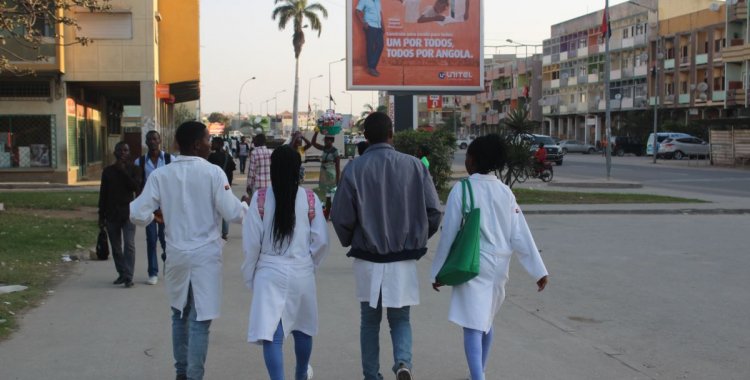To finance the model, Cedesa defends that the Government uses the amount of 4.9 billion dollars resulting from the recovery of assets that the State obtained in the scope of the ongoing legal proceedings, based on the recent statements by the President of the Republic, João Lourenço, as part of the debate on the State of the Nation.
Thus, "an amount taken from there would be used to create an Employment Development Fund, which we would simply call, because of the origin of the amounts, 'Marimbondos Fund'", they add.
The fund would receive part of the recovered assets and would use them to finance initiatives to promote employment and, thus, "money withdrawn in the past from the economy would return to this one to foster work for the new generations", they stress, considering that "with this the self-financing model would avoid any constraints imposed by the International Monetary Fund or the need for budgetary restraint ".
In addition to receiving training and assistance to get a job, participants in the pilot experiment of the new model against unemployment "would have guaranteed paid work, with the State subsidizing 100 percent of the salary in a private company or employing participants in the public sector, or supporting the creation of a micro enterprise ".
According to the model, all participants "would receive at least a minimum wage fixed in accordance with the Presidential Decree that regulates the matter, adequate to a life with dignity".
"The residents of the chosen municipality of Luanda, who have been unemployed for a year or more, would be unconditionally invited to participate", defends Cedesa in the document to which Lusa had access.
Participants would start with a two-month preparatory course, which would include individual training and counseling, and then be helped to find suitable and subsidized employment in the private sector, or supported to create their own job, based on their skills. and in the knowledge of the needs of his community, or he could even become an employee of the State.
The job guarantee was given for three years for all long-term unemployed, although participants could choose to work part-time.
The "fundamental question" for Cedesa scholars, which justifies the defense of this model, is the fact that unemployment in Angola is not cyclical, but structural, which means that "it is closely connected to the permanent deficiencies of the Angolan economy and it does not have a mere dependence on the economic cycle ".
The fact that the problem of unemployment is structural and of an economic recovery for the years 2021 and onwards is only between 2 and 4 percent of GDP, according to the current IMF projections, "imply that such an animation of the economy comes have little impact on employment ", they consider.
"According to this regime, to be implemented on an experimental basis in a municipality in Luanda, a universal guarantee of a properly paid job would be offered to all residents who have been unemployed for more than 12 months".
After testing the results and their effectiveness of the policy, the model could then be extended to more areas of the country.
In Angola, in the third quarter of 2020, the unemployment rate stood at 34 percent. This number corresponds to a chain increase (in relation to the previous quarter), of 9.9 percent, and homologous, (referring to the same period of 2019), in the order of 22 percent, says the report.
In view of these data, Cedesa's analysts consider that "whatever the perspective adopted, it is easy to see that unemployment is a fundamental and serious problem facing the Angolan economy and societies".
For Cedesa there is yet another aspect to take into account is that "the magnitude of unemployment in Angola would imply that in order to decrease the rate for the still frightening 24 per cent, GDP would have to grow 15 per cent" in the country.







